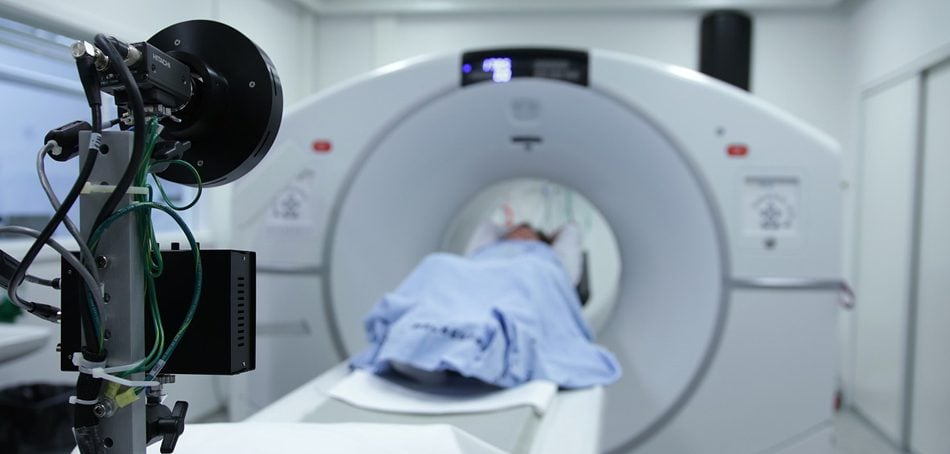In states where cannabis is legal, it’s no surprise that many cancer patients and their loved ones have considered the possibility of trying medical marijuana. When faced with such a devastating disease, it’s common to explore every available avenue, even those outside the realm of conventional medicine. However, as with most alternative medications, there will always be some individuals who oversell its benefits or even bill it as a “miracle” cure. So, what is medical marijuana’s actual role when it comes to cancer?
Alternative Medicine’s a Better Alternative
The chemotherapy, radiation, and surgical resections commonly used to treat cancer all come with various side-effects that can significantly decrease quality of life. Severe nausea and pain are just some of the worst symptoms that patients may experience, and often require further treatment with opioids and anti-nausea medications. As we’ve discussed in a previous blog, many patients have found cannabis to be a much better alternative for chronic pain than opioids. These individuals are able to experience a significantly improved quality of life when using cannabis over some of the other overly-sedating medications. Stimulating appetite, increasing daily activity, and improving sleep quality are important not just for overall well-being, but for helping your body to fight off cancer.
What About Treating Cancer Itself?
Cannabis is a Schedule 1 drug in the United States, so research on the topic is sparse, especially when it comes to cancer in humans. However, studies that have been done on animals and on cultured cells have shown that cannabinoids can inhibit tumor growth. Cannabis can even prevent the development of cancer-feeding blood vessels, inhibit tumor cell migration and metastasis on top of decreasing inflammation. Some foreign countries have been able to do research on cannabis and even include it in clinical trials. Below are the results of some case-studies and other research:
- Patients with a deadly brain cancer called Glioblastoma Multiforme had an 83% survival rate compared to 53% with placebo when given cannabis in addition to their treatment.
- A case-study of a pediatric leukemia patient showed that cannabis resulted in a decrease of her cancer cell count after chemotherapy had failed. While the patient did not ultimately survive, the use of cannabis correlated very strongly with her temporary improvement.
- CBD is effective in inducing cell-death in cultured breast cancer cells, regardless of whether they are Estrogen Receptor positive or not.
- Those who use cannabis are less likely to have bladder cancer than non-users by up to 45%. This is only a correlational study comparing tobacco smokers to cannabis smokers, however.
The Famous Rick Simpson
One of the most famous cases of marijuana as a ‘cure’ for cancer is Rick Simpson. He had been diagnosed with basal cell skin cancer on his arms and used topical cannabis to make it vanish. The treatment was an oil extracted from an indica plant rich in THC and other cannabinoids, which is has become known as Rick Simpson Oil (RSO). Nowadays, similar oils are created from a variety of strains – not just indicas. Patients will administer the oil orally with a syringe, which often has a very high concentration of THC compared to other oils or tinctures. Unfortunately, RSO can be lacking in terpenes including terpineol, which may have promising effects for cancer as well. Some dispensaries in Maryland carry RSO and a few will even reserve it for you if you call ahead of time.
So, is Cannabis a “Miracle” Cure?
Whether using cannabis to manage the side-effects of cancer treatment or as a supplement to the treatment itself, how you use it can be a difficult choice. The bulk of existing research is on the effectiveness of THC and CBD, but there are many other cannabinoids present in the plant which can provide additional benefits. Because of this, many patients opt to use full-spectrum products that are brimming with all the various cannabinoids and terpenes. Patients can go so far as to use very high doses of these products to try and flush their bodies with cannabinoids throughout the day, thus managing their symptoms and potentially fighting their cancer.
Ultimately, there’s still quite a lot of research that needs to be done and there’s no known best route to take, so patients should be cautious and try to curb their optimism. Medical marijuana can be very expensive, and as with all cancer treatments, there’s no guarantee for success. There are a lot of anecdotes and hopefully, our patients will find results, but it’s never good to oversell the benefits. Making outlandish claims can only harm marijuana’s public image, especially at a time when legislators and health professionals are steadily coming around to its potential benefits. It’s only a matter of time until cannabis will get its rightful place as a medicine worth federal funding for wide-spread cancer research.
If you or a loved one is suffering from cancer (or other ailments), Green Health Docs providers and staff will be happy to discuss the possible medical benefits and side effects of cannabis use with you. We also broadcast our educational sessions on YouTube and Facebook. For more information or to learn how to become a legal medical cannabis patient in Missouri or Maryland, call or text us at 1-877-242-0362.




Leave a Reply